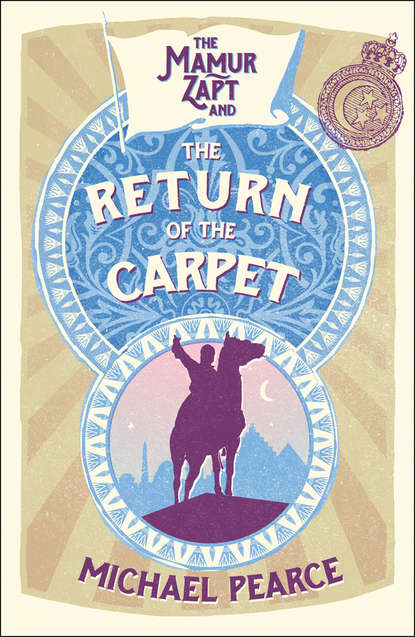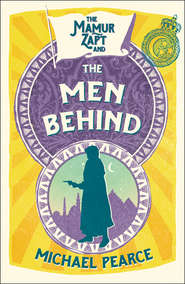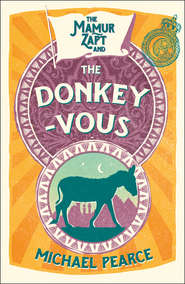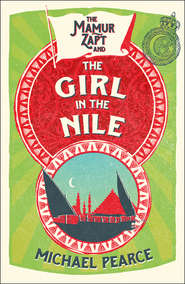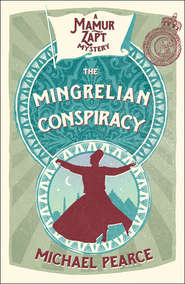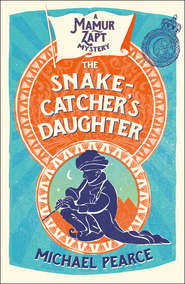По всем вопросам обращайтесь на: info@litportal.ru
(©) 2003-2024.
✖
Mamur Zapt and the Return of the Carpet
Автор
Год написания книги
2019
Настройки чтения
Размер шрифта
Высота строк
Поля
‘But those are the cases where you hear something. You didn’t even pick up a whisper this time?’
‘No.’
‘Slip-up,’ said Garvin.
Owen fought back.
‘Not necessarily,’ he said. ‘Anyone who’s plotting an assassination isn’t going to broadcast the fact. There may have been nothing to pick up.’
‘There’s always something to pick up in Cairo,’ said Garvin dismissively.
He turned his attention back to McPhee.
‘Buttoned up!’ he repeated. ‘You haven’t bloody even started! Whose man was he? What’s behind this? What are they after?’
‘The Parquet—’ Owen began.
Garvin swung round on him.
‘For Christ’s sake!’ he said. ‘Stop messing around! You know damned well this is nothing to do with them. It’s political.’
Garvin’s eyes bored into his.
‘So you’d better bloody get on with it,’ he said. ‘Mamur Zapt.’
CHAPTER 2 (#ulink_e2dd97d3-a504-51c1-b101-e6cc9d4bb322)
Owen was at the Place de l’Opéra shortly before seven the following morning. Early though he was, the Parquet was there before him.
Mahmoud was surprised.
‘The Mamur Zapt?’ he said.
He broke into a smile.
‘They have been leaning on you, too?’
‘They told me to stop messing around and bloody get on with it,’ said Owen.
‘Moi aussi.’
They both laughed.
‘It must be political,’ said Mahmoud.
‘What isn’t?’ said Owen.
‘And big.’
‘Why?’
‘Because you’re here.’
‘I honestly don’t know anything that makes it big,’ said Owen.
‘Nuri Pasha?’
‘I thought he’d retired from active politics.’
‘Those bastards never retire from active politics,’ said Mahmoud. He looked at Owen curiously. ‘Don’t you know? Really?’
‘No,’ said Owen.
‘I don’t really know either,’ said Mahmoud. ‘I just assumed—’ He broke off.
‘What did you assume?’
Mahmoud hesitated.
‘I’ve got no particular reason for assuming,’ he said at last. ‘I just took it for granted.’
‘What?’
‘That it was to do with Denshawai.’
‘Why should it be to do with Denshawai?’
‘Because Nuri Pasha was an Under-Secretary in the Ministry of Justice at that time.’
The Denshawai Incident had happened in 1906, just before Owen was transferred to Egypt and took up the post of Mamur Zapt.
Some British soldiers had been marching from Cairo to Alexandria and en route five officers had gone to the village of Denshawai to shoot pigeons. Round every Egyptian village were flocks of semi-wild pigeons kept for food and manure. No one was allowed to shoot them without permission from the head man of the village. The officers had misunderstood a guide who was with them and, thinking they were free to shoot, did so. The infuriated villagers had attacked the officers. Two had been wounded and one had died, of sunstroke it was thought, as he lay on the ground. The British-controlled Administration had taken exemplary action against the villagers. Four had been sentenced to death, others sent to prison, and seven had received fifty lashes.
The incident had sparked off widespread protests throughout Egypt. It had not been too popular with the new British Government, either. Word went that Cromer had been in effect forced out over the issue. He had been replaced as Consul General by the more pliable Sir Eldon Gorst, something which hadn’t, in the view of old hands, helped matters one little bit.
‘Denshawai flavours most things,’ said Owen slowly. ‘I don’t know that it is particularly important in this case. How closely was Nuri Pasha involved?’
‘Not very,’ said Mahmoud. ‘Which is why my assumption may be quite wrong.’
He looked around him.
‘And also why,’ he went on breezily, ‘I should get on with my reconstruction before the remaining half million of the Cairo population arrive on the scene to help me.’
The number of people on the Place was indeed beginning to grow. The first water-cart was coming down the Sharia el Maghrabi spraying water behind it to keep down the dust. The first forage camels were weaving their way along the Ezbekiyeh Gardens, great stacks bobbing precariously on their backs. The cab-men and donkey-boys lunched their animals on green forage, and from dawn a steady train of camels slouched over the Nile bridge to supply them. The first donkeys laden with heavy blocks of ice wrapped in dirty sacking were making their way to the hotels. People who had slept on the pavement, or on the wall next to the railings of the Gardens, or in the gutter (which was probably safer since they could not fall off), were beginning to stir. In the early morning it was sometimes quite difficult to get along because of the number of men lying about with their faces covered like corpses, sleeping as soundly as the dead. Now, as he watched some of the white or blue-gowned figures get to their feet, Owen was suddenly reminded of apocalyptic accounts of Judgement Day that he had heard from Welsh preachers. Not normally given to such visions himself, he thrust it out of his mind and concentrated on Mahmoud’s reconstruction. The Parquet followed French practice and usually required a ‘reconstruction’ of a crime by its investigators, and Owen, whose knowledge of standard police procedures was limited, was interested in seeing how Mahmoud approached it. Briskly, it appeared.
The Egyptian went over to a mark he had scuffed in the dust.
‘Nuri Pasha,’ he said, ‘was about here, facing out across the Place towards the Ezbekiyeh Gardens.’





